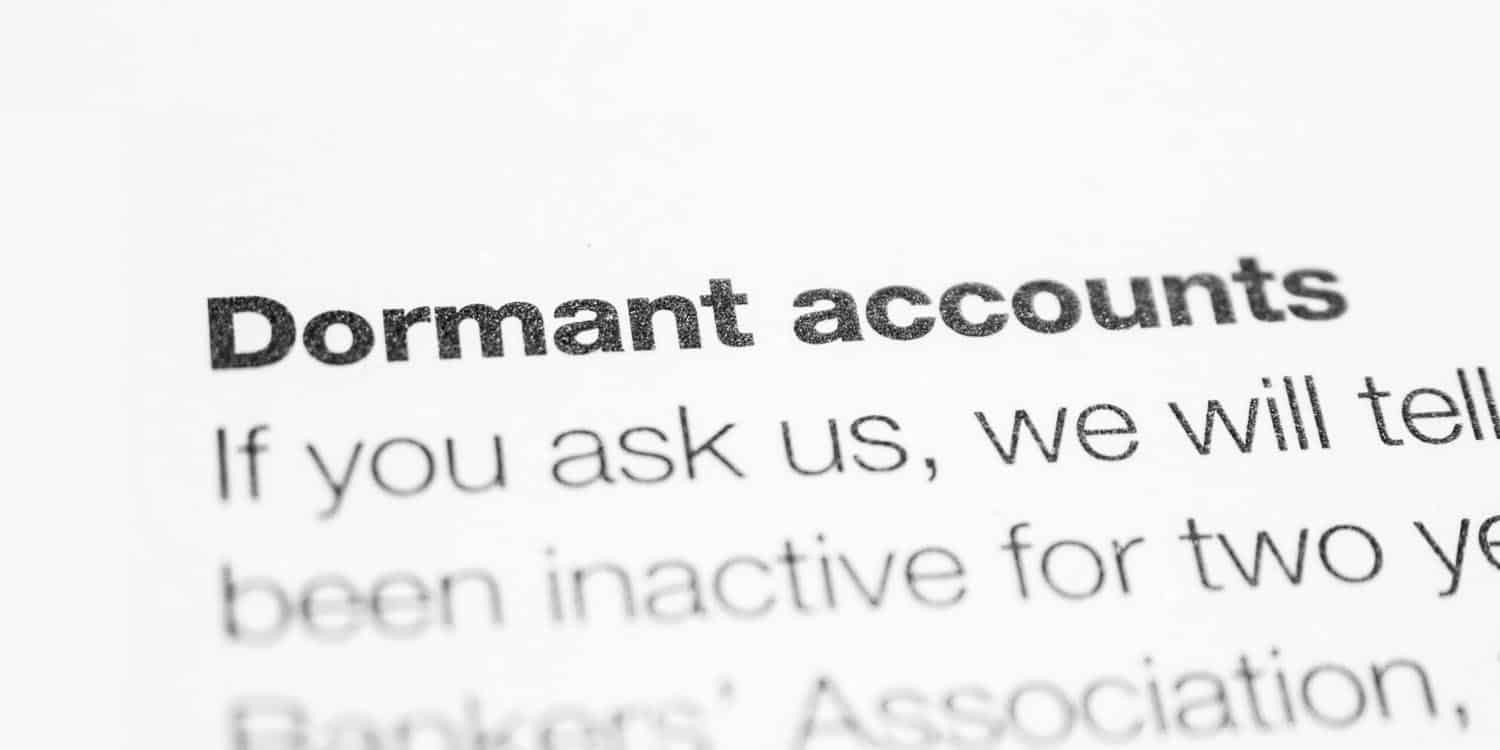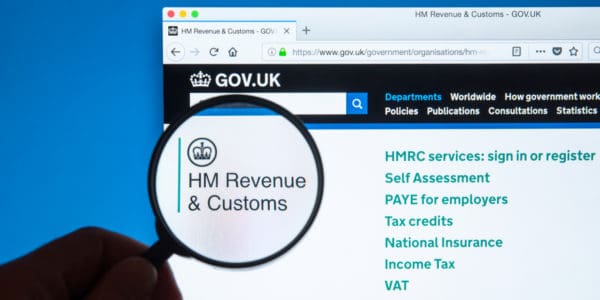A dormant company is one that’s not carrying out any business activity or receiving an income. This renders it inactive for Corporation Tax purposes as far as HMRC is concerned. It also means that abridged and unaudited accounts, known as ‘dormant company accounts’ can be sent to Companies House in certain cases.
Despite this, many business owners continue to file full financial statements when there’s no need. Here, we’ll take you through the alternatives available for dormant company accounts, along with the requirements you need to meet in order for your company to be viewed as dormant by both HMRC and Companies House.
We’ll also explain the legal obligations you need to fulfil with regards a company being classified as dormant.
Key takeaways
- Dormant companies face reduced filing requirements, allowing simplified accounts and avoiding full audits if classified as small.
- Notify HMRC within three months of becoming dormant to maintain tax compliance and avoid penalties.
- Dormant companies can hold assets or reserve names, providing strategic benefits without engaging in active trading.
Do Companies House and HMRC view dormancy in the same way?
The Companies House definition of dormancy is that it must have had ‘no significant accounting transactions during the accounting period’. So, for example, it cannot have generated income, or earned bank interest.
Even if someone traded for a short time, they’re active in the eyes of Companies House and will need to file a full set of accounts for the financial year.
However, small dormant companies can claim exemption from audit or filing full accounts under section 480 of the Companies Act 2006.
HMRC is only interested in company activity if it’s likely to lead to a Corporation Tax liability. It views a limited company as dormant up until the day it starts trading (no matter how long that takes), and there’s no need to file tax returns. Once trading starts, HMRC needs to be informed within three months.
If a company subsequently stops trading, it’s classified as ‘non-trading’ by HMRC but ‘dormant for Corporation Tax’. HMRC will allow a company to remain in this state for up to five years.
What makes a company ‘dormant’ for HMRC purposes?
A company is dormant if:
- It has stopped trading and has no other income, such as investments.
- It is a new limited company that hasn’t started trading yet – tax returns don’t have to be filed until the company starts trading.
- It’s an unincorporated club or association run for the benefit of its members, and owes less than £100 Corporation Tax.
Sometimes HMRC will consider a flat management company as dormant.
To find out more, read HMRC’s official guidance on what is active and dormant for Corporation Tax purposes.
What are the accounting benefits of registering a company as dormant?
A company that’s both ‘small’ and ‘dormant’ has a significantly reduced statutory burden on it, only having to submit an unaudited, abridged balance sheet and certain notes to Companies House, plus file an annual confirmation statement (previously known as an ‘annual return’). It won’t have to file a profit and loss account or directors’ report.
To find out more, read GOV.UK’s guidance on dormant company accounts.
How can I let HMRC know my company has become dormant?
To tell HMRC that your company has become dormant, you should contact the Corporation Tax department by phone or post. You must do this within three months of becoming dormant. You’ll need your 10-digit Unique Tax Reference to hand when you call.
What does it mean to be dormant for Companies House, and when is a company exempt from audit?
Even if your company is dormant for Corporation Tax and dormant according to Companies House, you’ll still need to file an annual confirmation statement (formerly known as an ‘annual return’).
However, if your company is dormant according to Companies House and also qualifies as small company, you can file dormant company accounts without having to include an auditor’s report.
A company is classified as ‘small’ if any two of the following apply:
- Its turnover is less than £10.2 million.
- It has less than £5.1 million on its balance sheet.
- It employs fewer than 50 people.
If this is the case, you can:
- Use the exemption so your company’s accounts don’t need to be audited.
- Choose whether or not to send a copy of the director’s report and profit and loss account to Companies House.
- Send abridged accounts to Companies House.
You’ll still need to send statutory accounts to your members and to HMRC as part of your Company Tax Return.
How are dormant company accounts filed?
1. Companies that have previously traded:
If the company has been dormant for the full financial year, there is no need to file an annual Company Tax Return, profit and loss account, or directors’ report.
However, you do need to file annual accounts which contain:
- balance sheet, stating the company was dormant during the accounting period, along with the director’s signature
- previous year’s figures for comparison
- certain notes to the balance sheet
Bear in mind that you may still be obliged to prepare full accounts for the company’s members, even if you do not have to prepare them for Companies House.
An annual confirmation statement must also be filed every year.
2. Companies that have never traded:
If your company hasn’t traded since incorporation (or where the only transaction is the issue of subscriber shares), it’s even simpler to file annual accounts. All that must be submitted is form AA02 – which requires the following information:
- company name and number
- date of balance sheet – this will be the same as the accounting year-end specified by Companies House
- confirmation of any called-up share capital due from shareholders
- details of any cash the company holds
- company’s net assets
- any share capital that’s been issued to shareholders
- confirmation of approval by the directors, along with the date
An annual confirmation statement must also be filed.
Quality Company Formations offers a dormant company accounts filing service for only £49.99, with several purchase options as follows:
- If you are an existing customer, simply log in to your Online Customer Portal, go to the SHOP, and purchase our Dormant Company Accounts Service
- If you are not an existing customer, you can easily create an account, navigate to the SHOP section, and then purchase the service.
- Alternatively, you can order this service without creating an account
As soon as you have placed your order, we will send you an email with a short questionnaire, which you will need to complete and return to us. We will ensure your accounts are filed within 24 hours (1 working day) of receiving the completed questionnaire.
How do I work out my company’s financial year (Accounting Reference Date)?
The ‘accounting reference date’ (ARD) lets you know the timeframe your company accounts need to cover. It represents the end of a company’s financial year and will fall on the last day of the month in which the company was incorporated (making the due date different for each company).
So, if a company was incorporated on 18 May, the ARD will be 31 May the following year. You can set up an email reminder via Companies House – they’ve found that companies who do this are less likely to miss their due date.
You can make up accounts to the ARD or seven days either side of it. A company’s ARD can be found using Companies House Service or if you are a customer of Quality Company Formations you can login to your account > My Companies > Click on your company name.
Tip: Be sure you don’t confuse the ARD with your company’s annual accounts due-date, which is the deadline for delivering your annual accounts to Companies House. Late filing can incur a penalty of up to £1,500 (doubled if your accounts are late 2 years in a row).
Can I change my Accounting Reference Date (ARD)?
As long as your accounts are not overdue, you can change your current or immediately previous accounting reference date, choosing to shorten or extend it. However, you can only lengthen the ARD up to a maximum of 18 months once every five years. You can shorten it as often as you like.
To do this, a board resolution or minutes of the meeting recording the decision to take such action are required. You’ll also need to let Companies House know by completing form AA01.
What are the reasons for forming or maintaining a dormant company?
There can be good reasons for establishing a business and not actually trading – or for allowing a trading business to become dormant:
- To set up a company for future use: By getting all the formalities out of the way, a company can then remain dormant until it’s ready to make its trading debut. So long as a company meets these requirements, it can remain dormant indefinitely.
- To lay claim to a name: As well as giving businesses time to get ready to trade, setting up a company ahead of time also allows the name to be registered – meaning nobody else can claim it in the interim.
- To hold a fixed asset: Dormant companies are often used to hold specific types of assets – the most common being freehold properties. So a dormant company may hold flats and manage them, while the active company deals with the economic side (the leases).
- To protect your interests as a sole trader: Many business owners are happy to remain sole traders, as doing so has certain benefits. Even so, they might want to lay claim to their company name (as no two limited companies can register the same name). For this reason, a sole trader might wish to set up and register a limited company with the same name as their sole-trading enterprise, then leave it as a non-trading entity.
- To take a break from trading: There are many reasons why someone may want to break from trading without winding their company up entirely. For example, if they’re having a sabbatical, travelling abroad, wish to embark on a course of education or simply need to deal with family or personal matters.
Maintaining the company as an active trading entity, albeit in a low-key way, isn’t the most desirable option, as full accounts would need to be submitted to Companies House each year, and it’s costly to produce these. Conversely, closing the company entirely would mean re-forming it later, with no guarantee that the name would still be available. Dormancy is, therefore, a good compromise.
Are there any types of transactions that are acceptable for a dormant company to carry out?
A dormant company cannot carry out any significant accounting transactions (i.e., ones that should be entered into its accounting records). To pass the Companies House test of dormancy, transactions must be limited to:
- Payments for subscriber shares
- Re-registration of a company
- Fees paid to Companies House for a change of name
- Payment of any penalties to Companies House
- The filing of confirmation statements
There are exceptions to this, such as financial companies that have to file full accounts, irrespective of their company status.














Join The Discussion